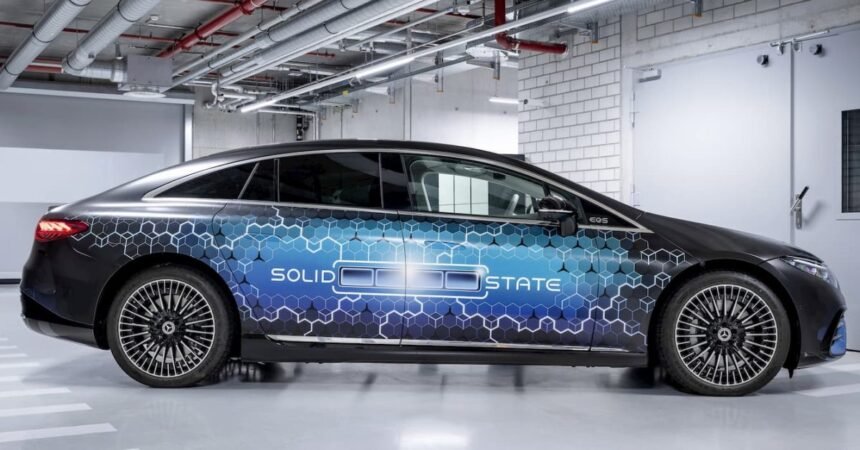Huawei has recently filed a patent for a sulfide-based all-solid-state battery that claims to offer an impressive driving range of up to 3,000 km (1,800 miles) and ultra-fast charging in just five minutes. This new development raises the question of whether solid-state EV batteries can truly deliver such exceptional performance in real-world conditions.
To put this claim into perspective, the current longest-range electric vehicle available on the market, the 2025 Lucid Air Grand Touring, boasts a WLTP driving range of up to 839 km (521 miles). In comparison, Huawei’s battery would offer over three times the driving range while cutting charging times by more than half. Additionally, it is said to have an energy density two to three times higher, ranging between 400 and 500 kWh.
However, industry experts remain skeptical about the feasibility of achieving such high performance levels. Yang Min-ho, a professor of energy engineering at Dankook University, pointed out that even the most advanced lithium-ion batteries fall short of the kind of range promised by solid-state prototypes. While the nitrogen doping approach described in Huawei’s patent may improve stability, it presents challenges in terms of scalability for mass production.
Despite the promising claims made by Huawei, the patent still requires third-party validation or additional data to confirm its readiness for production. Major Korean battery manufacturers, including LG Energy, Samsung SDI, and SK On, are closely monitoring developments in the solid-state battery space. Samsung SDI has already sent samples of solid-state batteries to clients and aims to start mass production by 2027, while LG Energy and SK On plan to introduce solid-state battery technology by 2030.
In conclusion, while solid-state EV batteries hold the potential to revolutionize the electric vehicle industry with longer driving ranges and faster charging times, it may take a few more years before this technology is commercially available. As battery science progresses incrementally, it will require time to scale up and overcome the challenges associated with mass production. Several automakers, including Mercedes-Benz, BMW, CATL, Stellantis, Nissan, and Volkswagen, are actively working on advancing solid-state battery technology to bring these innovations to market in the coming years.
As the industry continues to push the boundaries of battery technology, the race to develop the “holy grail” of EV batteries remains ongoing. Stay tuned for more updates on the exciting advancements in solid-state battery technology.







